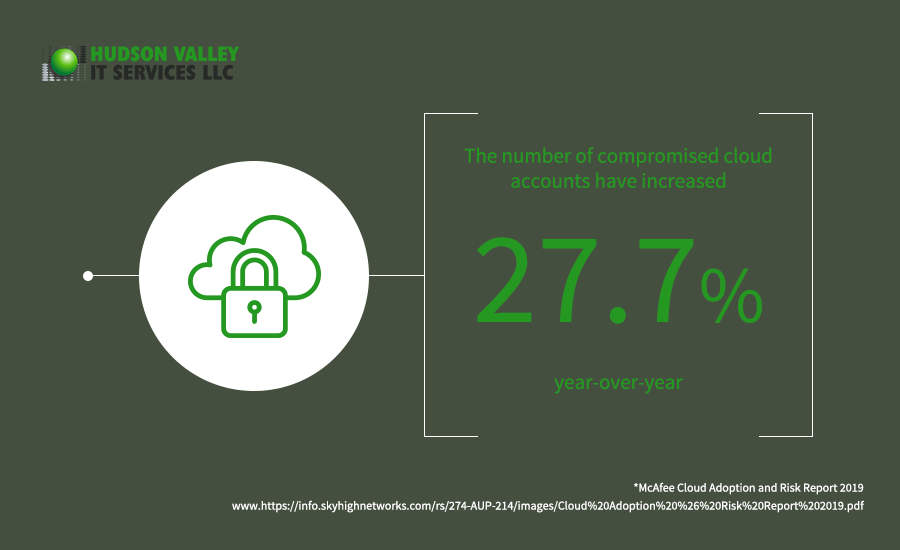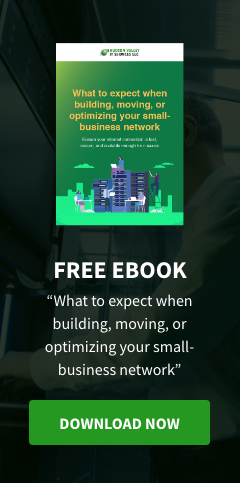
Businesses are moving to the cloud in droves as they tire of technological obsolescence and all the unpredictable expenses that come with on-site IT and hardware maintenance. However, for those looking to move some or all of their operations to an off-site computing environment, there’s the unavoidable question of data security. A common concern is that the cloud will be less secure, since you’ll be losing control over your data and the systems put in place to protect it.
For the most part, these fears are unfounded, and they’ve been debunked by many experts. There are certainly some cloud vendors with appalling security records, but plenty of them have access to expertise and resources that their clients couldn’t possibly expect to achieve alone. Done right, cloud-managed security can address all your worries, and here’s how:
#1. Increased productivity
Few things bring business to a grinding halt like a cyberattack. A denial-of-service attack can bring entire networks down in moments, leaving staff unable to work and customers unable to access your website. Productivity is invariably the first casualty of such an attack.
More serious events, such as data breaches and ransomware, can stifle productivity for even longer, months or even weeks in some cases. By proactively addressing security, cloud providers can stop such events from happening in the first place. Even if a problem does occur, they’ll be bound by their service level agreements to address it by a given deadline.
#2. Compliance auditing
Many businesses are legally required to adhere to certain industry regulations. The Payment Card Industry Data Security Standard (PCI DSS), for example, applies to any organization that handles payment card information. The Health Insurance Portability and Accountability Act (HIPAA) applies to any entity that holds patient health information, including third-party business associates.
A major barrier to implementing new technology is compliance concerns, not least because the laws change by state, and they change regularly. With a combination of industry-specific and local expertise, a cloud security provider should be able to carry out compliance auditing and ensure that all the necessary controls are in place to protect your and your customers’ data.
#3. Centralized management
Before the cloud, data security in the workplace followed the perimeter defense model, whereby the digital defenses were only concerned about attacks from the internet on on-site networks. Now that many businesses also store data online, as well as on mobile devices, relying on localized network security alone simply doesn’t cut it anymore.
Administrators need a way to manage user accounts and security controls across the increasing number of large attack surfaces. Cloud-managed security offers centralized management over user accounts, thereby allowing business leaders to enforce their security, privacy, and compliance policies across networks of any size and complexity.
#4. Round-the-clock monitoring
Hackers can strike at any time and exploit any vulnerability they see fit, which is why businesses can never let their guard down. That’s why round-the-clock monitoring is typically the minimum level of service that any cloud security provider will offer.
Furthermore, monitoring adds a crucial layer of defense outside your business and beyond traditional perimeter security. In other words, round-the-clock monitoring, combined with real-time alerts, helps prevent threats from getting into your network in the first place. It’s a proactive approach that ensures security, uptime, and performance are always operating at the highest standards.
#5. Predictable costs
Unscheduled downtime, regardless of what causes it, is one of the biggest killers of workplace productivity and brand reputation. To make matters worse, these costs are difficult to calculate, as are more direct costs, such as disaster recovery and remediation. If, for example, you fall victim to a ransomware attack, it could be weeks before your technicians can get everything back up and running optimally again.
With managed cloud security, the responsibility lies in someone else’s hands. That means no more unexpected expenses associated with break/fix support and all the other unpredictable costs that come with it.
#6. Better technology
Managed cloud security providers are experts in their field and specialize in modern business technology solutions. As such, they tend to have access to resources and expertise on levels far beyond what most organizations can expect to obtain in-house.
Today’s data centers are among the most secure places in the world, with 24/7 physical security combined with cutting-edge technological and administrative controls. With a cloud-managed security infrastructure, you can expect things like multifactor authentication, unified sign-on, centralized management, and full end-to-end encryption.
Hudson Valley IT Services provides a full range of managed technology services that your business needs to lock down its digital assets and stay ahead of the competition. Call us today to learn how.
Like This Article?
Sign up below and once a month we'll send you a roundup of our most popular posts



